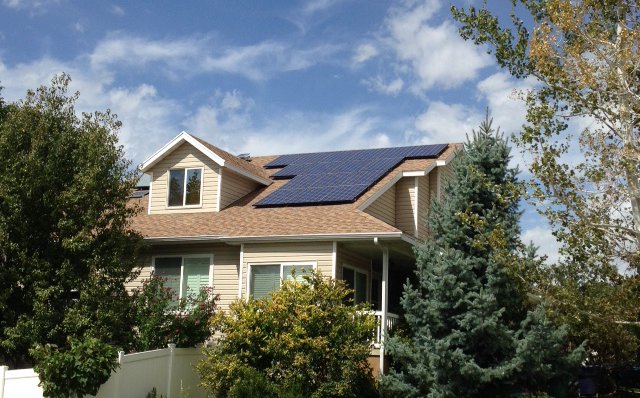Nov. 17, 2020
The Utah Public Service Commission Ruling on Compensation for Customer Generation (exported solar kilowatt-hours) and what it means for Rooftop Solar Moving Forward
By Tom Mills, Technical Sales and Policy Advocate
Solar enthusiasts,
We’d like to provide you with an update about the rate case regarding Rocky Mountain Power’s (RMP) proposal to reduce the Utah export credit rate for rooftop solar. We’ll share some background about the rate case, where it landed with the Public Service Commission’s (PSC) ruling (falling somewhere in the middle in between worst and best-case scenarios), and how you can still take actions to help encourage solar energy in Utah.
A brief synopsis: RMP proposed a reduction from 9.2 cents to 1.5 cents in solar kilowatt-hour valuation for Customer Generation (rooftops of homes and businesses) exported back to the grid. While independent research from Vote Solar showed a renewable, clean solar kilowatt-hour is worth 22-24 cents and proposed that one-for-one net metering be reinstated.
On Friday, October 30th, the PSC ruled that the value of a solar-kilowatt-hour be based on hard-cost values only and concluded that value to be 5.64 cents in the winter and 5.97 cents in the summer.
Note: This ruling does not impact any existing solar installations until 2032 and only pertains to future homeowners and businesses contemplating investing in ownership of their own clean-energy producing system.
Our analysis of the new rate found that it will add approximately two years to the payback period from the old rate. This new rate does not mean the end of residential solar and can still make sense for those who want to pursue individual energy independence while reducing their carbon footprint. We do know that homeowners are still moving forward with solar projects based on environmental activism, societal benefits, and long-term investment gains, among other reasons.
But the new rate will be prohibitive to some looking to install solar. Additionally, the PSC ignored the economic and environmental health benefits that Customer Generation provides to Utah and its residents. The PSC stated that such factors were beyond their oath and authority, but there is language in the oath of the PSC Commissioners that states they may consider the economic and environmental health impacts and the overall well-being of the state. The language also supports the notion that a home with solar is a category of energy production and that as such, the PSC should also consider how proposed rate changes affect this category.
The PSC ruling appears to ignore this new energy-producing category and only considers the profits and bottom line of RMP.
This language was written by Utah State Legislators. For the PSC to say that these considerations are outside their scope of work, strips away these provisions and ignores the language of our elected officials.
In sum, the PSC’s ruling does not represent fair, reasonable compensation and Utah consumers who are willing to invest in this clean energy technology deserve better!
What can you do as a Utahn?
Write letters of public comment to the PSC at psc@utah.gov expressing your disappointment in the ruling. Include “Docket No: 17-035-61” as the subject and include your full name and address.
-Reference the very language written by your state legislators that empowers the PSC to consider the economic and environmental health factors that benefit us all
-Help the PSC to recognize this new category of local energy producers and protect their interests and not just the interest of a monopoly power company
-Let the PSC know that a clean renewable kilowatt-hour’s value should not be based on direct costs alone.
Contact your legislators asking for favorable renewable energy legislation and express your discontent with PSC’s ruling. Find out who represents you.
Continue to have conversations with your friends, colleagues, and family about why solar is important to you.
Thank you!
Utah Solar Nonprofit Advocate Resources
